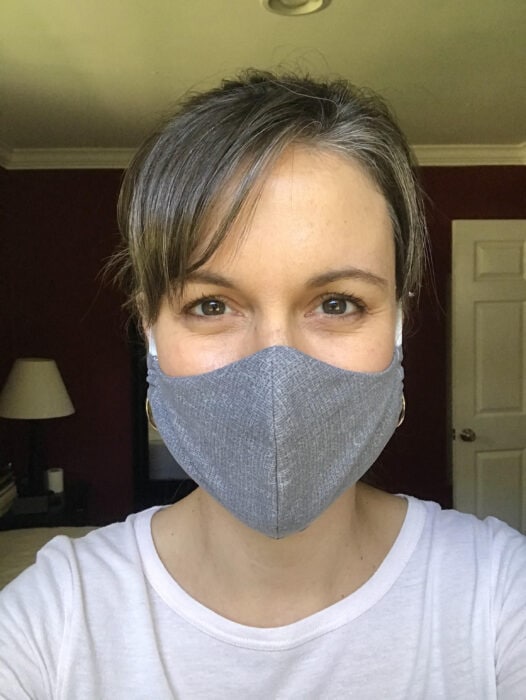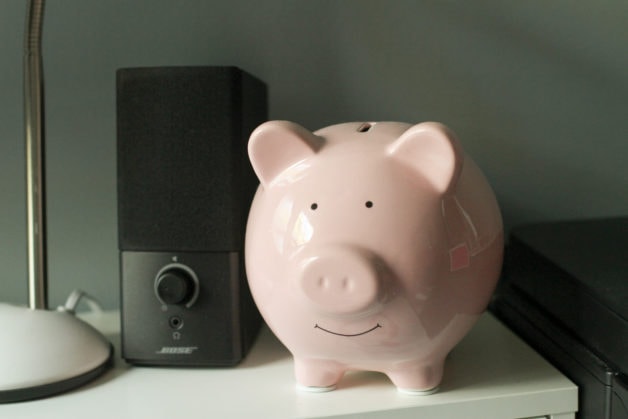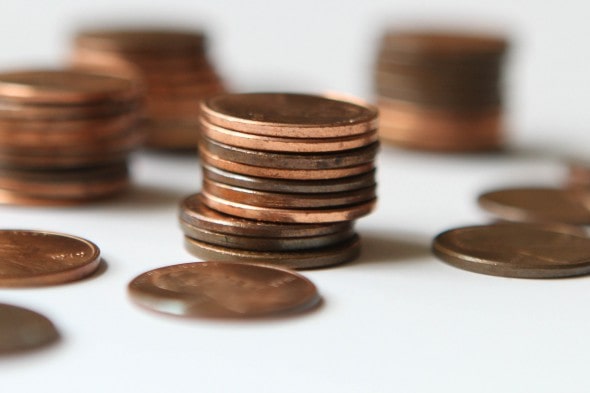About six months before the pandemic, I started a post draft titled, “Is a recession coming?”, and I never finished the post.
It’s kind of funny to look back, because yes, we did have sort of a recession during the pandemic.

Then there was an economic resurgence, but now I keep seeing, “A recession might be on the way!” types of headlines.
I think there’s some value in paying attention to these things, largely so that you can be prepared. But honestly, I think it might be better to always be prepared for economic difficulties.
This is wise partly because no one really truly knows when a recession is coming until it’s practically here. And at that point, it’s a little late to start prepping!
The other reason, though, is this:
Regardless of what’s happening in the economy at large, it’s always possible that a “personal recession” might hit you.
(I think I first heard this term on the How to Money podcast, although I don’t know who originally coined the phrase.)
A personal recession is basically a period of hard financial times for you, not necessarily for the larger economy.
Things that come to mind are:
- job loss
- illness
- divorce
- an injury that prevents work for a period of time
- a series of big expenses
- anything that keeps you from working (or makes you work fewer hours)
Because these sorts of difficulties are always a possibility, even in a booming economy, I think it makes sense to always be prepared to weather a recession, whether it’s personal or not.
So, here are three basic things that you can do to prepare for a personal recession. If you’re already doing ’em, great! If not, now is always a good time to start.
1. Spend less than you earn
Spending less than you earn means that your monetary surplus can consistently grow.
A personal recession hurts no matter what, but it’s a lot less painful if you aren’t already living in a near-disastrous financial state.
Monetary cushioning = more peace.

There are a million ways to spend less than you earn (I’ve been writing about that for years now), but one key thing is to set yourself up for sustainable, repeated success.
Basically, you should look for things that offer repeated savings over time.
For instance, you could find a good price on paper towels, but if you switch to t-shirt rags, dishcloths, and kitchen towels, you’ll save way more over time.
You could work the deals and get some tampons at a serious discount, but if you switch to a menstrual cup, you’ll enjoy the savings every month for years.
The same goes for switching car insurance, switching to a low-cost cell phone plan (we love Mint Mobile SO MUCH), choosing a reliable car that takes regular gas, and so on.
One-off savings are good; repeated savings are better!
2. Get good at living well on a low budget
If you’ve been living large and then a personal recession hits, the adjustment to a low-budget life will be rather painful.
But if you have already honed your living-on-a-small-budget skills, you will be less stressed when a personal recession hits you.
I’ve felt the relief of this in my current circumstances; I’m kind of in the midst of a personal recession and I don’t really see that changing in the super near future. Heck, it may actually get worse before it gets better.
But I don’t feel terribly stressed about it; I already know how to make a beautiful life on a shoestring budget, so I think I’m going to be fine.
3. Earn more money
I’m a huge fan of money-saving activities, of course! But I am also a fan of earning money.
If you do not already have a financial cushion and you want to get prepped for a personal recession, frugal habits can help some.
However, upping your earnings can really speed up your personal recession prep!

If you have a job already, you could ask for a raise. Or you could switch employers.
But there are other smaller moves you can make too, depending on your skill sets.
In my adult life, my side hustles have included babysitting, freelance writing, and photography, and I’ve played the piano for weddings, funerals, parties, and churches.

And though it’s never come to this, I know I could hire myself out to help people declutter/organize.
What are you good at? There’s probably something you could do on the side!
My friend Whitney flips furniture as a side hustle.
Some people who live in big cities make a side income charging electric scooters.
Some people pet-sit or house-sit.
Some people tutor on the side.
There are tons of possibilities!
Obviously, you don’t want to side-hustle yourself to death; it’s important to keep a balance between working and living.
But if you are in a precarious financial spot, it could be wise to buckle down for a bit and do some extra work to get yourself into a solid financial position.
But what if there’s no recession?
It’s possible that you could do this prep work and then never experience a personal recession (or a countrywide or worldwide recession).
But the odds of that are extremely low; most people hit financial bumps at some point.
And besides, if you do this prep and then never need to use your cushion, I think that’s a best-case scenario; better to have it and not need it than to need it and not have it.
___________________
Usually, I ask a single question at the end of a post, but I’ve got multiples today!

Amanda
Thursday 11th of August 2022
Great post! The last two years have been my first personal recession. With school shutdowns and limited child care support, my husband and I have both lost a lot of work time. He is a small business owner and I am an academic, so our income is closely tied to how many hours we can work. Luckily we've still had an income, but it was much smaller than it otherwise would have been. "Personal recession" is a great way to describe it. Unlike when I left work and went back to grad school and we knew how much our income would drop, there was the uncertainty of not knowing month to month what things would look like. Would we still have a business at the end of the year? Would I regret buying needed replacement sneakers for the kids if our income dipped again next month? Side hustles aren't an option for us (if we had extra time we would make more by doing more of our main jobs). Instead living below our means throughout our marriage saved us. Our only debt is our mortgage, and we were able to pay that and put food on the table. We we into COVID with a lot of savings too, which we dipped into in leaner months.
Kim
Wednesday 10th of August 2022
I faced my personal financial crisis as a 20 something going through a divorce and left with nothing but a huge stack of debt. I had a baby to raise and literally no money to feed myself. I allowed myself one glass of grape juice each evening. This would make me feel full enough to sleep. I ate once or twice a week. I washed my baby's cloth diapers in the bath tub because I didn't have enough money to wash and dry at the laundromat. Little by little, I paid my way out of the debt I owed and then my parents gave me a huge hand up by allowing me to stay with them until I could pull myself back up. It wasn't easy but I learned a lot and now that times are tough once again, I know I can do it no matter how much sacrifice and hard work is involved. That experience gave me faith and confidence for which I will always be grateful.
Cathy
Tuesday 9th of August 2022
My family is experiencing a personal recession. Not our first, which is why we live beneath our means. It does give us the opportunity to reprioritize our spending habits. We aren't big spenders, per se, but we will hold off on any splurges for now. Dang, I miss the occasional splurge! :(
Our recession is completely out of our control due to the following: 1. Hubby is a mortgage broker, and no one is refinancing right now. Business is OK with home purchases, but that's it. Plus, he is competing with so many other mortgage lenders, he's cutting his commission to stay competitive. 2. Hubby's side hustle is part-time teaching at the local community college. Due to low student enrollment (apparently all across the county), his classes have been cancelled over the past year. Tenured, full time faculty get priority. 3. Our health and dental insurance has been through the community college. Since he's not teaching, our insurance was dropped. We now have to insure our family through my part-time job. This takes 50% of my pay away, and our insurance coverage is not as good, meaning co-pays are much higher (now $90, formerly $15). 4. We have opted out of dental insurance, and (fingers crossed!!) won't have any need for emergency work. We are paying bi-annual cleaning costs out of pocket.
We're making do, and we'll be fine. It's simply a time to cut back and be more aware of our spending habits. If we can do it, anyone can!
Kathy
Tuesday 9th of August 2022
I’m 69 so I’ve been thru the upside, downside and whatever financial corrections you want to call it. I went back to work part time as I was bored and I missed the social interaction of the work environment. The extra $$ provides a safety net for whatever comes our way.
Maggie
Tuesday 9th of August 2022
Very good post. I actually worry TOO much about this topic. We live below our means and save each month (and have a very good social security net). Still, I constantly feel worried about a potential personal recession.